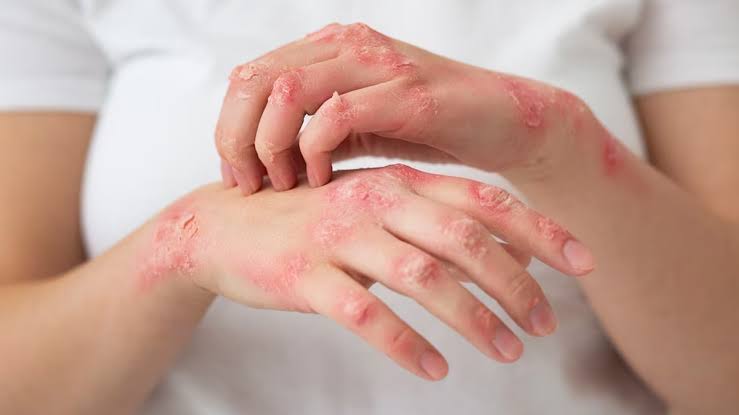- Get link
- X
- Other Apps
JUST IN
- Get link
- X
- Other Apps

How an infection spreads and its effects on the human body depend on the type of pathogen.
The immune system is an effective barrier against infectious agents. However, pathogens may sometimes overwhelm the immune system’s ability to fight them off. At this stage, an infection becomes harmful.
Some pathogens have little effect at all. Others produce toxins or inflammatory substances that trigger negative responses from the body. This variation means that some infections are mild and barely noticeable, while others can be severe and life threatening. Some pathogens are resistant to treatment.
Infection can spread in a variety of ways.
Bacteria, viruses, fungi, and parasites are different types of pathogens. They vary in several ways, including:
size
shape
function
genetic content
how they act on the body
For example, viruses are smaller than bacteria. They enter a host and take over cells, whereas bacteria can survive without a host.
Treatment will depend on the cause of the infection. This article will focus on the most common and deadly types of infection: bacterial, viral, fungal, and prion.
Viral infections
Viral infections occur due to infection with a virus. Millions of different viruses may exist, but researchers have only identified about 5,000 types to date. Viruses contain a small piece of genetic code, and a coat of protein and lipid (fat) molecules protects them.
Viruses invade a host and attach themselves to a cell. As they enter the cell, they release their genetic material. This material forces the cell to replicate the virus, and the virus multiplies. When the cell dies, it releases new viruses, which infect new cells.
Viral infections include:
- the common cold, which mainly occurs due to rhinovirus, coronavirus, and adenovirus
- encephalitis and meningitis, resulting from enteroviruses and the herpes simplex virus (HSV), as well as West Nile Virus
- warts and skin infections, for which HPV and HSV are responsible
- gastroenteritis, which norovirus causes
- COVID-19, a respiratory disease that develops after a novel coronavirus infection that is currently causing a global pandemic.
Causes
The cause of an infection is whichever type of organism has entered the body. A specific virus, for example, will be the cause of a viral infection.
The effects of an infection, such as swelling or a runny nose, occur due to the immune system’s attempt to get rid of the invading organism.
A wound fills with pus, for example, when white blood cells rush to the site of an injury to combat foreign bacteria.
Symptoms
The symptoms of an infection depend on the organism responsible, as well as the site of the infection.
Viruses target specific cells, such as those in the genitals or upper respiratory tract. The rabies virus, for example, targets the nervous system. Some viruses target skin cells, causing warts.
Others target a wider range of cells, leading to several symptoms. A flu virus can cause a runny nose, muscle aches, and an upset stomach.
Prevention
There is no single method for preventing all infectious diseases. However, people should take the following steps to reduce the risk of transmission:
Wash the hands often, especially before and after preparing food and after using the bathroom.
Clean surface areas and avoid keeping perishable food at room temperature for too long while preparing a meal.
Receive any recommended vaccinations and keep them up to date.
Only take antibiotics with a prescription and be sure to complete the recommended course, even if symptoms improve at an earlier stage.
TYPES OF FUNGAL SKIN INFECTIONS
Nail Fungus
Nail fungus of the toenails typically occurs in the elderly population and is easily identified with the tell-tale thick and brittle toenail on the big toe that usually has a yellowish tint. This particular infection is one is the most resistant to over-the-counter medications. However, Scholl Fungal Nail Treatment 3.8ML is very effective in curing toenail infections.
Athlete’s Foot
Even though it’s called Athlete’s Foot, this type of infection is not limited to athletes – it can affect anyone. The fungus that causes athlete’s foot thrives in damp areas such as locker rooms and public showers where people tend to walk barefoot. It causes flaky, scaly, and itchy skin on your feet. OTC topical creams such as Mycota Crm 25G and sprays like Daktarin Spray Pdr / Aktiv 100G are fast-acting, curing the infection and symptoms in just a few days.
Ringworm
Ringworm is a fast-spreading fungal skin infection that shows up on the skin in small circular patches that can be extremely itchy and irritating. OTC topical creams including Daktarin Crm Dual Action/Aktiv 30G with the active ingredient of Lamasil are very effective at treating ringworm and its symptoms.
Jock Itch
Jock itch typically develops in men and adolescent boys, with an itchy rash that appears in the area near your thighs and groin. The rash may worsen after exercise or other physical activity and can spread to the buttocks and abdomen. Both Canesten Af Dual Action 1% W/W Cream 15GM and Daktarin Gold Crm 15G are highly effective and fast-acting treatments for jock itch.

Comments
Post a Comment
Let know your comments